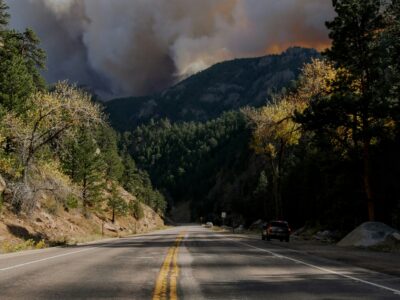It’s the Economy
 The Western Business Roundtable doesn’t care for Cap and Trade (the politician’s tool of choice for reducing carbon emissions). In fact, it is hard to believe that the organization gives much weight to the climate challenge at all. The Roundtable, the website of which does not list its members, but describes them as including representatives of the coal, oil, and gas industries, hired a consultant to explain why the Western Climate Initiative (WCI) is a bad idea. The WCI is a consortium of western states and provinces dedicated to developing a regional carbon cap and trade program with the modest goal of reducing carbon emissions 15 percent below 2005 levels by 2020.
The Western Business Roundtable doesn’t care for Cap and Trade (the politician’s tool of choice for reducing carbon emissions). In fact, it is hard to believe that the organization gives much weight to the climate challenge at all. The Roundtable, the website of which does not list its members, but describes them as including representatives of the coal, oil, and gas industries, hired a consultant to explain why the Western Climate Initiative (WCI) is a bad idea. The WCI is a consortium of western states and provinces dedicated to developing a regional carbon cap and trade program with the modest goal of reducing carbon emissions 15 percent below 2005 levels by 2020.
The Roundtable’s consultant issued its report on February 17th. While the Roundtable expresses an interest in developing a “common sense” national climate change policy, its criticism sounds like a classic business attack on environmental protection efforts. According to the Roundtable, a cap and trade program would raise prices, which in turn would “retard” job creation. It would discourage the deployment of new “advanced” coal-fired power plants (defined as including plants with and without carbon sequestration). The report expresses concerns about the effect of the SCI on hydroelectric and nuclear power plants, but it is not clear why. In addition, the report tries to minimize the value of a carbon reduction program by claiming that the WCI, alone, would have only the slightest effect on reducing global temperatures.
The Western Business Roundtable’s recommended solutions include a “call for the rapid deployment of the full range of low carbon-emission power generation technologies across the West – including those fueled by coal, natural gas, nuclear and hydropower – in order to fuel economic growth and job creation while reducing emissions.”
By raising the specter of higher prices, the Roundtable implicitly rejects the principle of putting a price on environmental externalities. In addition, it discounts the argument that renewable energy projects will lead to a net increase in jobs. Its call for more conventional coal and gas power plants ignores the very premise of a carbon reduction program. And its effort to isolate the potential benefits of the WCI from other worldwide carbon reduction efforts suggests that we have no responsibility to address our contribution to a global problem.
Many would bet that the Western Business Roundtable’s assessment of economic impacts of cap and trade is wrong. Regardless, the Roundtable’s argument stands for the proposition that we ought to cut back on carbon reduction efforts whenever we might otherwise compromise economic growth as traditionally defined. This is a serious concern, since the compromise language in California’s climate protection law (AB 32) allows the governor to suspend the state’s carbon reduction goals for economic reasons. The question is whether we can afford that particular luxury.
Reader Comments
2 Replies to “It’s the Economy”
Comments are closed.






At a public hearing at the South Coast Air Quality Management District yesterday in Diamond Bar, California, I heard local industries, heavy emitters of VOCs, singing from the same hymnbook. It’s jobs vs. environment, according to them. I got booed when I got up and mentioned that they’ve been profiting for years from treating the air as a free public sewer and ignoring the health effects of what comes out of their stacks.
Just passing by.Btw, you website have great content!
_________________________________
Making Money $150 An Hour